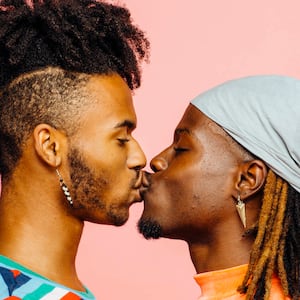In this special series, LGBT celebrities and public figures talk to Tim Teeman about the Stonewall Riots and their legacy—see more here.
Sarah McBride
National Press Secretary, Human Rights Campaign; author, activist; in 2016 became the first openly transgender person to speak at a national party convention at the Democratic National Convention
ADVERTISEMENT
When/how did you first hear about the Stonewall Riots, and what did you make of it?
I first heard about the Stonewall Riots as a teenager when I would stay up late googling the word "transgender." I remember reading the few pages online at the time that featured the legacies of Sylvia Rivera and Marsha P. Johnson.
What is their significance for you?
Stonewall represents what our movement and our Pride celebrations should always be: an intersectional, diverse resistance to oppression, injustice and persecution. It reinforces our shared history as a community and our strength when we fight together across gender identity, sexual orientation, race, age, disability, and class. Stonewall remains that North Star, a reminder of how far we've come and, at the same time, how far we have to go.
How far have LGBT people come since 1969?
There is no question that in the 50 years since Stonewall, we have achieved progress that may have seemed impossible to many of the patrons at the Stonewall Inn. And, yet, it is shocking that we still lack nationwide protections for our community from discrimination throughout daily life.
Far too many LGBTQ people still face discrimination, rejection and violence simply because of who they are. And we know that our progress is not always evenly felt across the community, particularly for transgender people, LGBTQ people of color, and those who live at the intersection of multiple marginalized identities.
What would you like to see in the next 50 years, LGBT-wise?
I'd like to see the passage of the Equality Act, so that LGBTQ people are protected from discrimination throughout this nation. I'd like to see a movement that continues to grow in our understanding and inclusion of LGBTQ people who still remain unheard or unseen even in their own communities. And no matter the progress we've achieved in the next fifty years, let us recognize on the 100th anniversary of Stonewall in 2069, that our work is never, ever finished.






